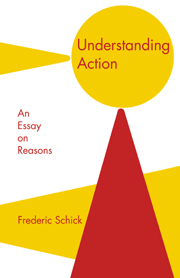Summary
IN THE BEGINNING
The history of the theory of practical reason begins with some questions by Aristotle. How does it happen that “sometimes thinking is accompanied by action and sometimes not?” Aristotle notes that this question is similar to one we might ask about pure speculation, speculation about what things are like. In that, we draw a new belief from some others we have – that is, we do this where we conclude. Why do we sometimes conclude a reasoning and sometimes come to no conclusion? He suggests that this has to do with the pattern of the reasoning involved. It has to do with whether the reasoning reflects a proper argument form, the logic of speculative-argument forms being worked out in his theory of the syllogism. In a practical context too, all depends on the pattern of the argument, though there is the fundamental difference that
… [what] results from the … premises is … [an] action. For example, whenever someone thinks that every man should take walks, and that he is a man, at once he takes a walk. Or if he thinks that no man should take a walk now, and that he is a man, at once he remains at rest. And he does both of these things if nothing prevents or compels him. I should make something good; a house is something good. At once he makes a house. […]
- Type
- Chapter
- Information
- Understanding ActionAn Essay on Reasons, pp. 9 - 54Publisher: Cambridge University PressPrint publication year: 1991



